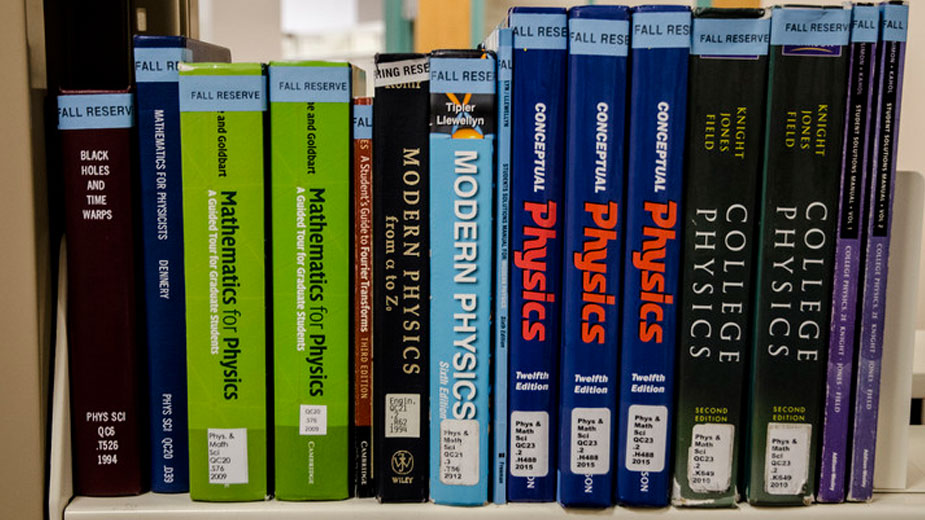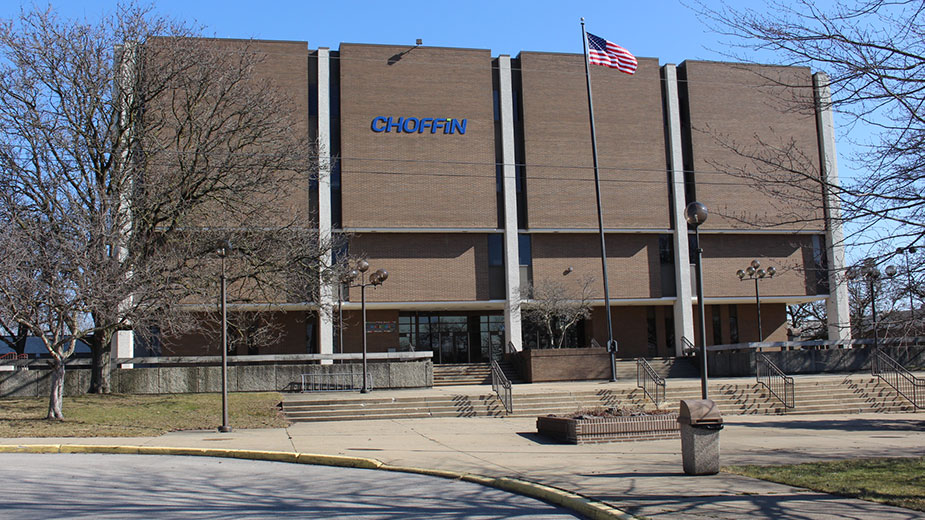Open, Affordable Textbook Efforts Save PSU Students $4.8M
UNIVERSITY PARK, Pa. — Over the past three years, efforts by Penn State University Libraries faculty and staff have lowered or eliminated the cost of textbooks and other course materials nearly 20 times over, saving students millions.
Funded primarily by Penn State’s provost, Nick Jones, with support from Penn State World Campus, University Libraries, Teaching and Learning with Technology and Barnes & Noble, the initial investment of some $245,000 has saved students $4.8 million in potential expenses on textbooks and other course materials. The university looks to build off the initiative with a three-year plan, investing another $600,000.
“Penn State’s novel, combined approach to lowering textbook costs through the use of both freely open and affordable, or low-cost, resources, is gaining notice in higher education nationwide,” said Rebecca Miller Waltz, University Libraries head of Library Learning Services and co-chair of the University’s Open and Affordable Educational Resources (OAER) Working Group. “However, even more impressive is the multifaceted breadth and depth of effort we are making across the University in growing open and affordable course materials for reducing students’ overall cost of attending classes and transforming education across the commonwealth.”
Faculty benefit from increased access to open content online they can revise and excerpt as needed, allowing them to design lessons and assignments and embed content best suited to their teaching approach and environment. This adaptability of content has opened up the potential for new and cutting-edge approaches to instruction and learning, according to a press release.
The OAER Working Group grew from a 2016 report from an Open Educational Resources Task Force charged by the provost five years ago. Co-chaired by Waltz and Ann Taylor, assistant dean for distance learning and director of the John A. Dutton E-Education Institute in the College of Earth and Mineral Sciences, the working group includes faculty, staff and student representatives from across the University. Its efforts support Penn State’s strategic foundational goal of providing access to education by lowering the cost of overall attendance, according to the release.
Among several concurrent initiatives making the group’s success possible:
- Faculty development through the Affordable Course Transformation (ACT), a grant-based program, led by University Libraries and Teaching and Learning with Technology, helps support instructors in replacing high-cost published course material with “pedagogically sound open and affordable” content. ACT assists faculty in making materials available at no cost to students or for under $50. The ACT program, which is about to launch its third round of projects, already has helped instructors of 30 courses across 15 campuses either author or adapt course materials for classes in 19 subjects. Once this material has been created, future instructors can access and adapt it for their own instructional needs and for students’ access. An estimate of potential cost savings to students for this initiative alone exceeds $1,177,700.
- A libraries-licensed e-textbook pilot program for World Campus courses, initiated in fall 2017. Through the fall 2019 semester, 355 e-books replaced traditional textbooks and were made available for 296 World Campus courses for an overall online student potential cost savings of $3,277,637. These e-books have been placed into the University Libraries’ catalog for unlimited perpetual use, so residential course instructors and individual students also are able to access them, extending potential savings for additional students in the future.
- During the 2018-19 year, the e-textbook pilot expanded to include residential courses from the College of Information Sciences and Technology and the College of Engineering – the University’s largest college by enrollment, exceeding 8,000 undergraduates. While the first pilot program among University Park campus engineering students alone included only 35 e-books among 13 courses, their impact was significant. The total potential savings those e-books provided to students exceeded $266,560.
For more information about Open and Affordable Educational Resources at Penn State, visit OER.PSU.edu. To learn about additional Open at Penn State initiatives being led by the University Libraries and its partners, visit Open.PSU.edu.
Image: Penn State University Libraries
Published by The Business Journal, Youngstown, Ohio.



